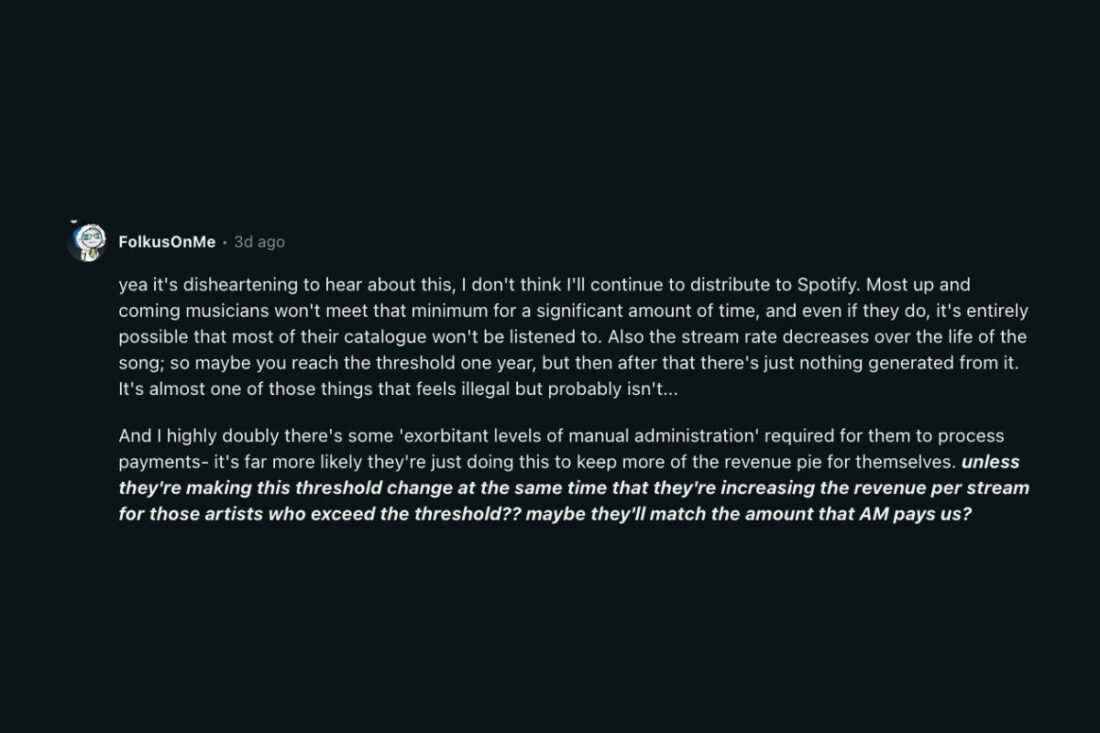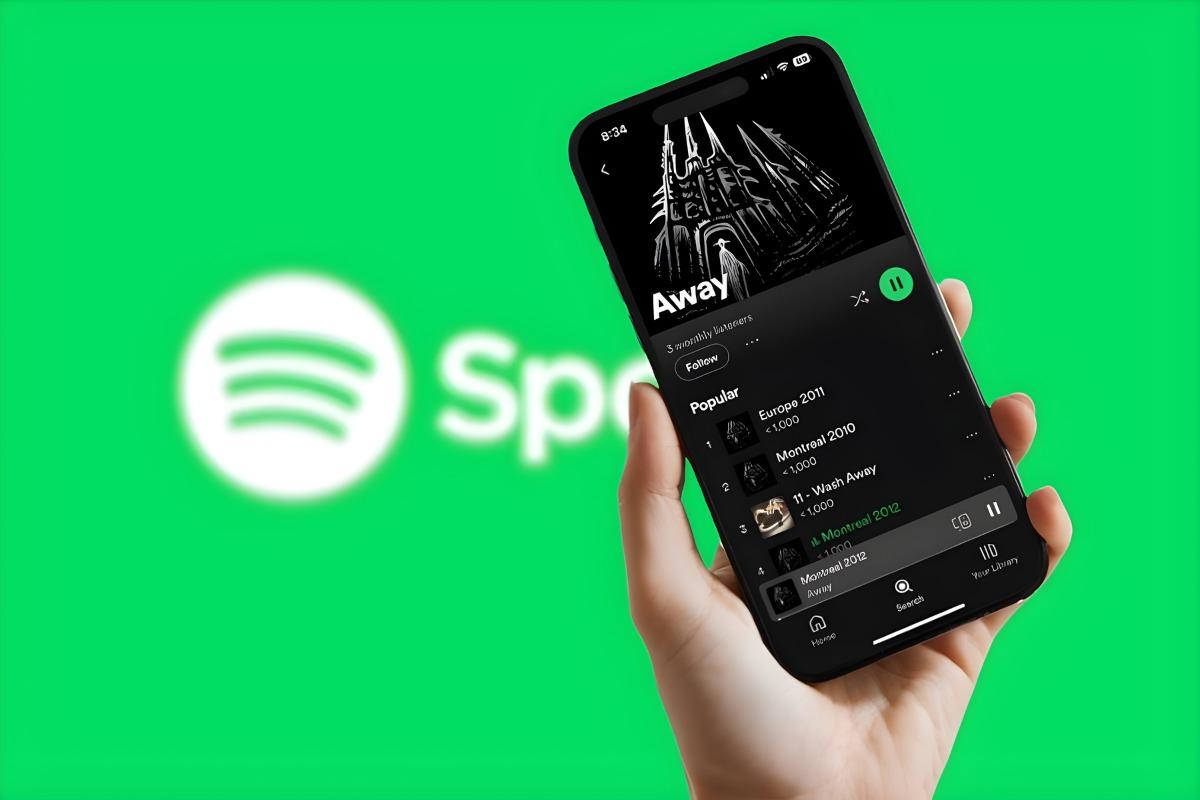Songs now need at least 1000 streams before earning royalties, putting indie artists in peril.
Spotify’s new policy requiring a minimum of 1000 streams for royalty payments has triggered widespread debate in the music industry. According to the 2023 consumption data, this new policy means that approximately 82.7% of tracks on Spotify, translating to about 152.2 million songs, will no longer generate recording royalties due to falling short of this threshold.
Set to take full effect in early 2024, this model may significantly alter the streaming landscape. It poses risks of reduced market share and earnings for emerging artists, smaller labels, and DIY distributors.
For instance, companies like Distrokid, Tunecore, and CD Baby, predominantly representing tracks with under 1000 streams, might face revenue drops. In contrast, major labels such as Universal Music Group, Warner Music Group, and Sony Music Entertainment could see their revenue shares grow.
Emerging and Independent Artists Are the Most Affected by This Policy Change
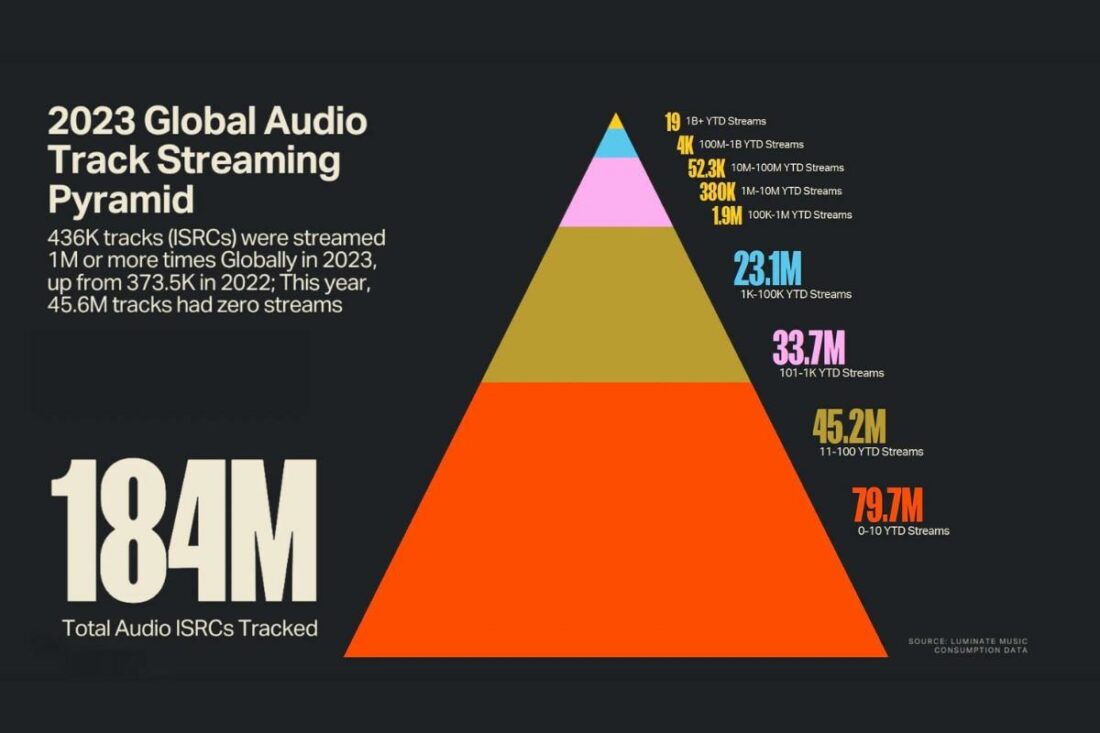
Diving deeper into the statistics reveals a stark reality for many tracks and artists. Of the total affected songs, 79.5 million had less than 10 streams. Meanwhile, 42.7 million tracks fell in the 11-100 streams range, and 30 million tracks achieved between 101 to 1000 streams in 2023.
Emerging and independent artists are the most affected by this policy change. For these artists, every stream counts. So, falling short of the 1000-stream benchmark means a direct impact on their potential earnings from the platform. This has a tangible effect on the revenue stream of these artists, who often depend on every small income source.
The policy shift has also altered the dynamics within the streaming platform. Tracks with higher stream counts now receive a larger share of the royalty pie. These tracks are more likely to be from well-established artists or popular music genres.
Tracks with lower stream counts, on the other hand, face a new challenge in monetizing their content on Spotify. This could include niche or experimental music.
Spotify’s Decision Is Grounded in Addressing the Challenges of Distributing Very Small Payments
Under the previous system, many artists received payments as low as $0.03 per month. But due to the minimum withdrawal amounts required by labels and distributors (usually between $2-$50) and transaction fees charged by banks (usually $1-$20 per withdrawal), these small payments often failed to reach the artists.
Consequently, these minimal earnings were largely lost in the system, never reaching the uploaders.
Spotify’s policy change aims to reallocate these funds more effectively. Beginning in early 2024, only tracks that have achieved at least 1000 streams in the previous 12 months will be eligible to generate recorded royalties.
This strategy aims to boost payments to artists heavily dependent on streaming revenue. It aims to make royalty distributions more impactful and meaningful.
Spotify emphasizes that this change does not alter the total size of the music royalty pool being paid out to rights holders. It merely redirects the allocation of these funds.
The platform asserts that 99.5% of all streams are of tracks that have at least 1000 annual streams, and each of these tracks will earn more under the new policy.
Additionally, Spotify believes this policy will help combat the manipulation of streaming figures. Tracks can no longer earn revenue from a large quantity of low-streamed content. So, this can eliminate strategies used to game the system or artificially inflate streaming numbers.
Consumer Reactions
The announcement of Spotify’s new policy has sparked debates from consumers and industry insiders.
Many users strongly disapprove, contemplating a switch to other platforms and questioning Spotify’s intentions.
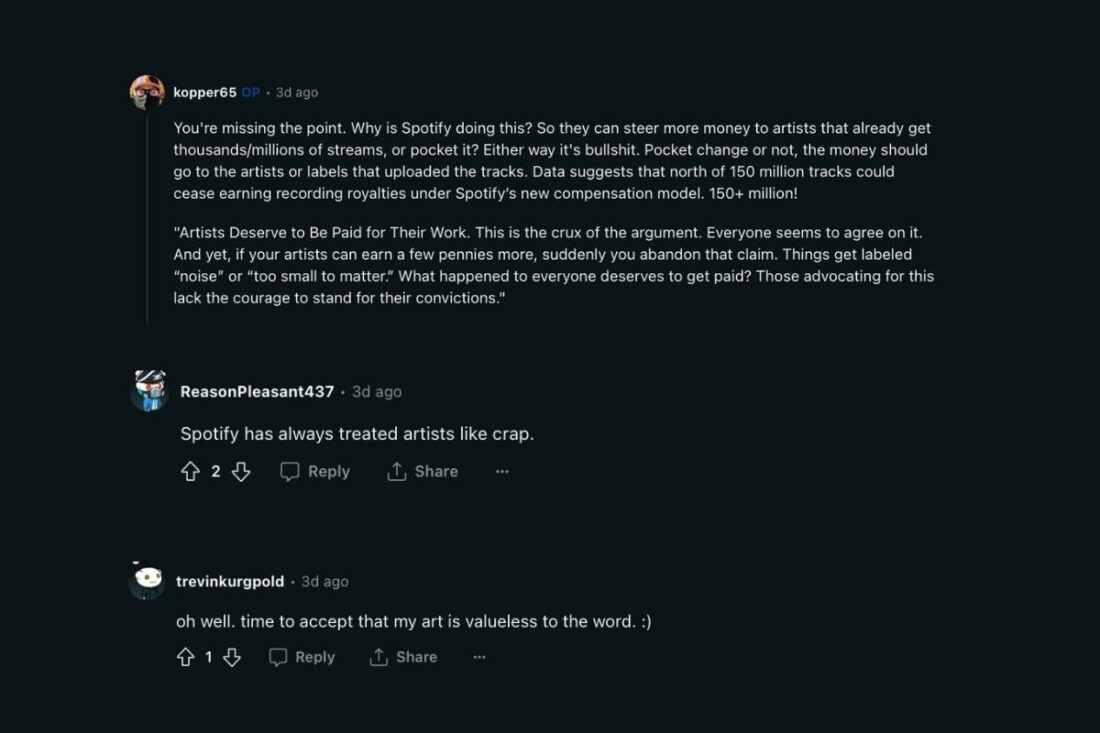
Kopper65, for instance, suspect that the platform may be directing funds towards more popular artists or increasing its profit margins. This concern was echoed by others who are alarmed by the potential impact on over 150 million tracks.
In contrast, there are those who defend Spotify’s decision from a business standpoint.
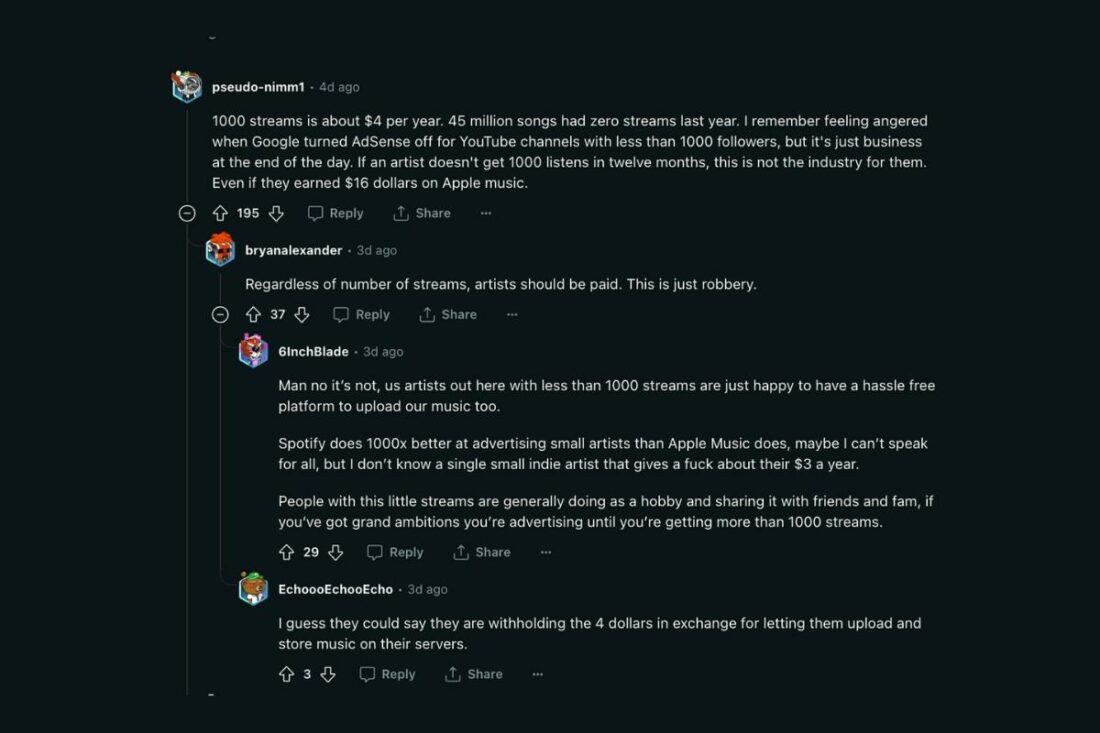
Pseudo-nimm1 argues that reaching 1,000 streams is a reasonable goal for dedicated artists. This viewpoint suggests that those unable to meet this threshold might need to reassess their position in the industry.
However, some argue for every artist’s right to compensation. This is regardless of popularity or stream numbers.
Supporting Spotify’s approach, 6InchBlade, presumably an artist themselves, appreciates the platform for its user-friendly features and effective promotion of small artists. They argue that the minimal potential earnings are insignificant compared to the benefits provided by Spotify.
EchoooEchooEcho shares this sentiment. They said the withholding of minimal earnings could be seen as a trade-off for the platform’s hosting and distribution services.
Yet, LynchMaleIdeal says that this mindset can be bad for the rest of the affected artists.
On the other side of the debate, concerns arise about the impact on new and upcoming musicians. FolkUsOnMe highlights the difficulties these artists may face in reaching the 1,000-stream benchmark. They express doubts about Spotify’s administrative reasons and concern over potential earnings decline as track popularity decreases.
